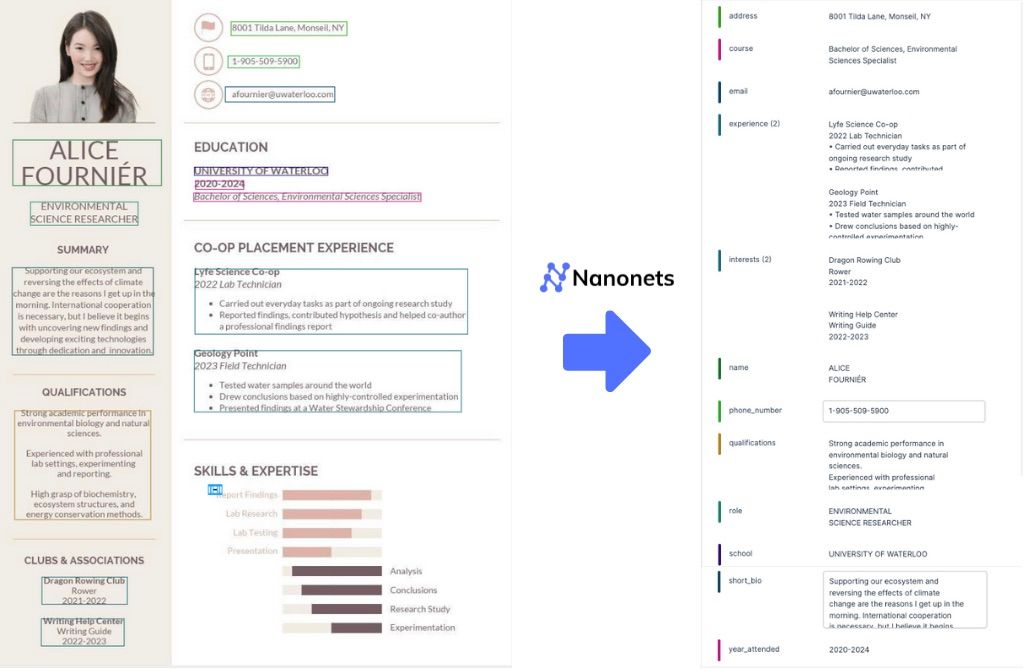
[ad_1]
What is resume parsing?
What does parsing a resume mean? Resume parsing is the automated process of extracting structured data from a resume with software to help with import, storage, processing, and search. By ‘structured data’, we refer to the data having correct labels, for instance, all your jobs and internships would be found with the label ‘experience’
Why do recruiters need resume parsing?
As a recruiter, have you found it hard to explain why the recruitment drive for a role is slow? Or finding it difficult to collate numbers on even surface level data? You are not alone. On average, every job posting receives almost 200 applications. A recruiter’s job is already hard, trying to find the right candidates for their organization while balancing the pipeline of candidates coming in and sorting through documents apart from resumes.
So if your boss or anyone else ever asks you questions about why you need resume parsing, we have prepared a few answers for you below.
Why is resume data entry so slow?
As we already mentioned, on average, every job posting receives almost 200 applications. When this data is inputted manually, there is a significant loss of time and accuracy, since it takes a lot of time to actually translate this information for a large batch of resumes. It is therefore not a surprise that on average, recruiters only read a resume for about 7 seconds before making a call on the candidate. This also leaves a lot of room for human error, which might creep in when you are processing candidates at scale.
How do I filter the candidates out?
Being able to search and filter out candidates using fixed parameters assists in filtering out candidates and speeds up the process overall. However, this is significantly harder to do without resume parsing, since the data is unlikely to be homogenous. Making data easily searchable and grouped into related categories is important to find the right candidates, and helps renew focus on the best candidates.
How do I assess the health of my recruitment pipeline?
Without a software-based process in place, analyzing the troves of data on your candidate pipeline is next to impossible. How do you know if the channels you’re using to source your candidates are as effective as you would expect? How do you know if a certain job posting is attracting the wrong kind of candidates? Or if the candidates are too similar or dissimilar? Answers to these questions cannot be sought until and unless there is data being collected and processed at scale – which is where resume parsing softwares come in handy.
Want to start resume parsing, or integrate it with an API? You can either sign up for free, or schedule a call with us here
Resume Parsing Software
There are several kinds of resume parsing softwares out there. It is a well-known problem, and several companies have been innovating to solve this. Predominantly, AI-based techniques have been utilized to account for the kind of variability that resumes bring in. It is highly unlikely that any two resumes have the same format or headers for each column. It is not quite possible to write a deterministic program by hand to account for all of these changes on a case-to-case basis.
While some of these methods might be based on older AI techniques like Rule-Based Classification, at Nanonets, we make use of sophisticated Deep Learning techniques to extract data in a structured manner. Deep learning techniques help cover a larger range of variability and provide higher accuracy for customers.
ATS (Applicant Tracking System) integration
Once all of this data has been collected, how do you execute analytical queries, collaborate with your team, attach different stages of a pipeline to each candidate? Of course, an excel sheet gets the job done, but for effective automated processing, for resume parsing API integrations with your ERPs, you will probably need an end-to-end suite.
Several such ATS solutions exist, and while we do not specifically endorse any tool, a simple google search will suffice in finding such resume parsing softwares and ATS tools, often integrated into a single bundle for you.
Resume Parsing with Nanonets
At Nanonets, we build structured OCR data extraction tools. Regardless of what kind of document you are looking to process, our deep learning algorithms extract this information with a high level of accuracy. As an API-first company, we can also help you use our models as resume parsing APIs, which can directly be integrated into your existing tools or solutions.

With Nanonets, you can easily build out a resume parser, and integrate it with your existing ATS systems, CRMs, software, or simply download the data in easy-to-use CSV or Excel file formats.
[ad_2]
Source link